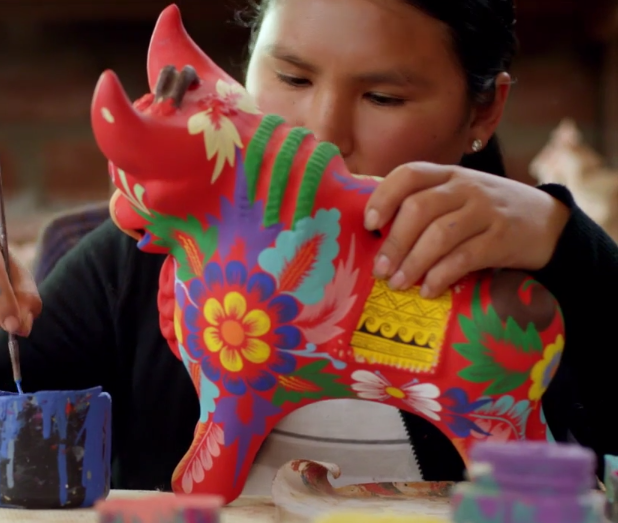
“What in the world is Worldstock?”
That’s what I asked when a friend recently mentioned an online fair trade program that has returned $100 million to artisans around the world. Worldstock.com is a division of online retailer Overstock.com. Using the marketing muscle of Overstock, which generated $1.3 billion in revenue in 2013, Worldstock sources and sells handmade items by artisans all over the world. It then gives 60 to 70 percent of the sale price back to the artisans and suppliers.
According to Patrick Byrne, CEO of Overstock.com, the wheels started turning on WorldStock when he was on two wheels in Southeast Asia.
“I was motorcycling in Cambodia in 2001,” explained Byrne, “and because of the land mine issue there you see a lot of people without arms and legs. These people can’t do many traditional jobs so they get retrained as potters, weavers and silversmiths. They were doing amazing work.”
It dawned on Patrick that there was an opportunity for Overstock to help.
“You couldn’t find these items in the states, and when you did they were expensive,” said Patrick. “We had a system at Overstock that would

allow us to sell the items without marking them up a lot. That meant more money for the artisan who made it.”
From these humble beginnings, Worldstock has grown to include 10,000 artisans in 55 countries. “Worldstock was the single-best idea of my life,” said Byrne.
To get the program rolling, Overstock had to do the initial outreach to artisans. In some cases, this meant traveling to distant places – like Afghanistan – to educate artisans about the program. That’s changed as the program has matured. Artisans know of Worldstock’s reputation and contact them directly. Best of all, Overstock is used to dealing with businesses with small quantities. In short, an artisan doesn’t have to produce thousands of items to be included in Worldstock. If they make a couple dozen baskets a week they can sell them on Worldstock.
In addition to helping artisans sell their products, Overstock has taught workers other skills along the way. “We had to show them how manage inventory and ship things to to the United States,” said Byrne. Artisans also needed computer skills, like learning how to use email.
Although you won’t find it mentioned on the site, Worldstock mainly focuses on women artisans. “The money that men make tends to get spent on themselves – alcohol, tobacco,” said Byrne. “Women invest the money back into the family.”
Byrne is happy with the success of Worldstock, but over a decade after starting it what excites him is its potential. “It could be ten times the size it is now. We just need to get the word out.”
Although Worldstock is only open to artisans in the developing world, Overstock has a separate program – Main Street Revolution – for small business owners in the states. “If you have 20 or fewer employees and make your own product, you can sell it through the MSR portal,” said Byrne.
Overstock.com’s business has been built on saving consumers money. Along the way, they created and developed Worldstock, which improved the lives of tens of thousands of people in 55 countries. That’s quite a deal.